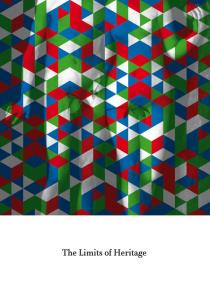- Regulamin
- Koszty dostawy
- Kontakt
- Dziś w ofercie 237 403 produkty
KSIĄŻKI
- Albumy
- Beletrystyka
- Biografie
- Dla dzieci i młodzieży
- Edukacja
- Ekonomia i biznes
- Ezoteryka
- Historia
- Informatyka
- Kalendarze
- Komiksy
- Kryminał i sensacja
- Kultura i sztuka
- Literatura faktu
- Literatura kobieca
- Literatura piękna
- Medycyna
- Nauka języków obcych
- Nauki humanistyczne
- Nauki przyrodnicze
- Nauki ścisłe
- Podręczniki
- Poradniki
- Prawo i administracja
- Przewodniki i podróże
- Psychologia
- Religia
- Sport
- Technika
- Zdrowie i uroda
ZABAWKI
- Artykuły dla niemowląt
- Bączki
- Bujaki i skoczki
- Ciągnij / pchaj
- Dla niemowlaka
- Grzechotki i gryzaki
- Karuzele i pozytywki
- Maty i centra zabaw
- Projektory i lampki
- Sortery i piramidki
- Zabawki
- Edukacyjne i kreatywne
- Figurki
- Klocki
- Lalki
- Pojazdy
- Pluszaki i maskotki
- Sport i rekreacja
- Zabawa w dom
- Zabawki drewniane
- Puzzle
- Do 200 elementów
- 201-500 elementów
- 501-1000 elementów
- Ponad 1000 elementów
- Puzzle 3D
ART. PAP
- Artykuły biurowe
- Artykuły piśmiennicze
- Bloczki i kartki samoprzylepne
- Dziurkacze
- Kalkulatory
- Nożyczki i nożyki
- Skoroszyty
- Teczki
- Wizytowniki
- Zszywacze
- Artykuły szkolne
- Akcesoria szkolne
- Modelowanie
- Notatniki i zeszyty
- Piórniki
- Plecaki i torby
- Pojemniki na śniadanie
- Pomoce naukowe
- Przybory matematyczne
- Przybory rysunkowe
- Upominki i gadżety
- Akcesoria do książek
- Artykuły balowe
- Breloki i zawieszki
- Drobiazgi, różności
- Kubki
- Oferta Świąteczna
- Papeteria, kartki i naklejki
- Skarpetki Many Mornings
- Upominki
GRY
MULTIMEDIA
- Audiobooki
- Beletrystyka
- Biografie i wspomnienia
- Dla dzieci i młodzieży
- Fantastyka
- Filozofia i religia
- Historia
- Literatura faktu i reportaż
- Poradniki
- Sensacja i kryminał
- Filmy DVD/BD
- Animowane
- Biograficzne
- Fantasy
- Horrory
- Komedie
- Romanse
- Science Fiction
- Sensacyjne / kino akcji
- Thrillery
- Muzyka CD
- Alternatywna
- Blues
- Dla dzieci
- Jazz
- Klasyczna
- Piosenka aktorska i poetycka
- Pop
- Rock
- Świąteczna i kolędy
- Akcesoria GSM
- Głośniki
- Kable i adaptery
- Klawiatury
- Myszy
- Słuchawki
PROMOCJE
ZDROWIE
LEGO

The Limits of Heritage
ISBN:
9788363463328
EAN:
9788363463328
oprawa:
Miękka ze skrzydełkami
format:
16.6x24.0
język:
angielski
liczba stron:
712
rok wydania:
2015
(0) Sprawdź recenzje
Opis produktu
Zasady bezpieczeństwa
Publikacja gromadzi ponad 40 artykułów rozpatrujących dziedzictwo kulturowe w Europie Środkowej w rozmaitych jego aspektach w ciągu 25 lat transformacji ustrojowej. Druga dekada XXI wieku skłania nie tylko do spojrzenia na system ochrony dziedzictwa, lecz również na znaczenie i filozofię dziedzictwa. Co podlega ochronie? Jak kształtować relację między teraźniejszością a przeszłością? Gdzie kończy się dziedzictwo i kiedy współczesność staje się dziedzictwem? Jakie są granice dziedzictwa?
Międzynarodowe grono autorów – naukowców i ekspertów w zakresie dziedzictwa – rozważa dziedzictwo kulturowe w Europie Środkowej w różnorodnych jego przejawach i na różnych przykładach. Tom jest owocem 2. Forum Dziedzictwa Europy Środkowej, zorganizowanego przez Międzynarodowe Centrum Kultury w 2013 roku.
The Limits of Heritage
The second decade of the 21st century is a time for thinking not only about the system of heritage protection itself but also on its significance and philosophy: What is to be protected? How should relations between the present and the past be built? In the context of international and local lists of properties, sites, and forms of cultural heritage, where does this heritage end and when does the present become heritage? The theme of “the limits of heritage” draws our attention to the indefinable and complex relationship between the past and the future. And rightly so, because what cultural heritage in fact means is using the past in order to achieve a contemporary aim. The growing importance of cultural heritage also stems from that belief. The focal point of deliberations held in the volume is Central Europe, whose experience and cultural dilemmas are both unique and universal. Consequently, they illustrate perfectly the on-going contemporary debate carried out not only in Europe but also all over the world. In this debate, our voice must be present and heard!
The volume contains over 40 articles from both Central Europe and outside the region. The strong interest in the idea behind the Forum among scholars from all over the world and the range of perspectives (also in geographic terms) represented by the authors of the texts is the best confirmation that the Central European Heritage Forum is an important platform for dialogue and a response to the need for enhanced studies into the region’s heritage.
CENA:
36,14
zł
Cena detaliczna:
60,00 zł
40%
rabatu
Najniższa cena z ostatnich 30 dni: 36,20 zł
Produkt niedostępny
Uwaga!!!
Ten produkt jest zapowiedzią. Realizacja Twojego zamówienia ulegnie przez to wydłużeniu do czasu premiery tej pozycji. Czy chcesz dodać ten produkt do koszyka?


Wybierz wariant produktu
